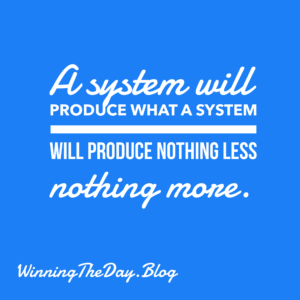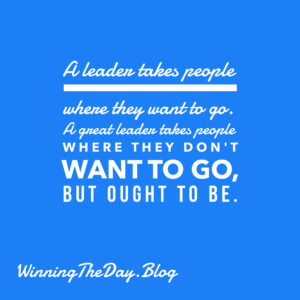The headlines are deafening. One expert predicts a market crash, another a buying frenzy. Interest rates are a daily obsession. A new lawsuit threatens to upend the entire industry. Everyone has a hot take, a prediction, a complaint. Everyone is a commentator.
The volume goes up, the noise gets louder, and it’s easy to get swept up in the chaos.
Meanwhile, nothing that truly builds your business has changed.
The phone still sits there, waiting for you to make the calls. Your database still needs to be organized. The difficult conversation with the seller whose home isn’t getting offers still needs to happen. Your skills still need to be sharpened, your value proposition still needs to be perfected, and your daily habits still decide who you are when the commission checks aren’t rolling in.
Mental toughness in real estate isn’t built when you have three offers on a listing in the first 24 hours. It’s forged when the world feels uncertain, and you stay focused anyway. It’s built when you choose discipline over distraction, client care over internet chatter, and grit over gossip.
Here’s the truth for every agent, broker, and recruiter in our industry:
You don’t need to win an argument about the future of commissions. You need to win the trust of the next family that needs to sell their home.
You don’t need to be right about where rates are going in six months. You need to be ready when a client calls you in a panic, needing a steady, expert hand to guide them.
When a deal gets rocky, when a buyer gets cold feet, when a market shifts and your clients need real strength, no one is going to care what you posted on Instagram. They will ask if you have a plan, if you can lead, if you can endure.
That is why we train. That is why we practice our scripts, why we master our CRM, why we preview property on a Tuesday morning when no one is watching. Not to impress our peers, but to become the kind of professional people can count on when it really matters.
Let other agents trade outrage online. You focus on building your capacity.
According to the National Association of REALTORS®, a significant number of agents leave the industry within the first five years. The reasons often boil down not to a lack of talent, but a failure to consistently perform the fundamental, unglamorous tasks of the job. It’s a failure in discipline.
How Do You Vet for Strength?
I’m inspired by a story from Joe De Sena, the founder of Spartan Race. He once had two men drive over seven hours for a business meeting. When they arrived, he didn’t take them to a conference room. He took them on a ten-mile run, followed by hundreds of pull-ups and burpees. By the time they sat down for breakfast, their hands torn up, he knew everything he needed to know. They showed up, did the hard work, and didn’t complain.
How are you vetting your agents? How are you assessing your own capabilities?
For recruiters and brokers, look past the vanity metrics. An agent’s strength isn’t measured by their follower count; it’s measured by their follow-up. Look for the agent who is obsessed with their craft, who time-blocks their prospecting, who seeks out coaching, and who doesn’t flinch when a client needs a dose of reality.
For agents, your character isn’t built in a viral Reel. It’s built when you get up at 5 a.m. to study the MLS before your family wakes up. It’s forged in the sweat equity of door-knocking in July and in the choice to take another negotiations course when you could be scrolling.
Strength doesn’t tweet. It quietly earns trust and closes deals.
Your Assignment This Week
Go quiet. Tune out the noise, the performative rage, and the endless speculation.
Pick something hard for your business and do it. Not because you’ll get likes for it, but because it will make you a better, stronger professional.
- Make the 20 calls you’ve been avoiding.
- Finally segment that messy database.
- Have the pricing conversation you know you need to have.
The most successful people in this business are rarely the loudest in the room. They are the most disciplined, the most prepared, and the most focused on the things that actually matter.
Now go prove it.
Inspired by: De Sena, Joe. “The Hard Way” Newsletter.
Source: National Association of REALTORS® (NAR) member data and industry reports on agent success and failure rates.






